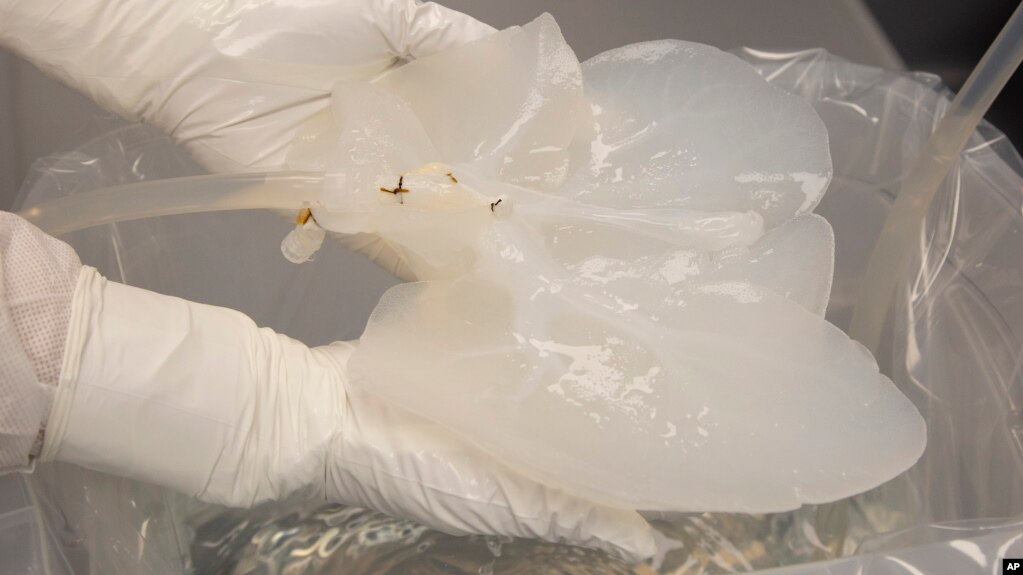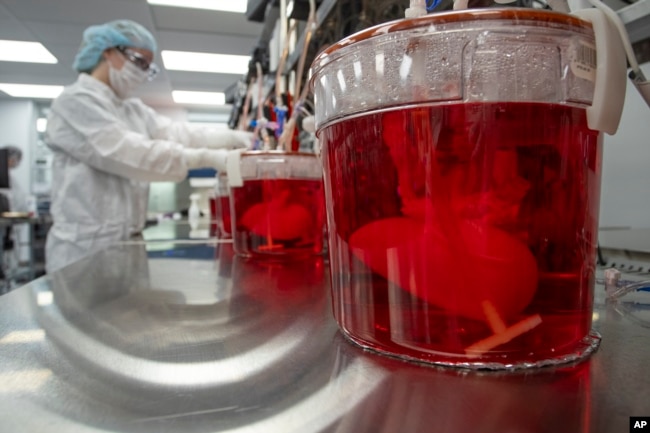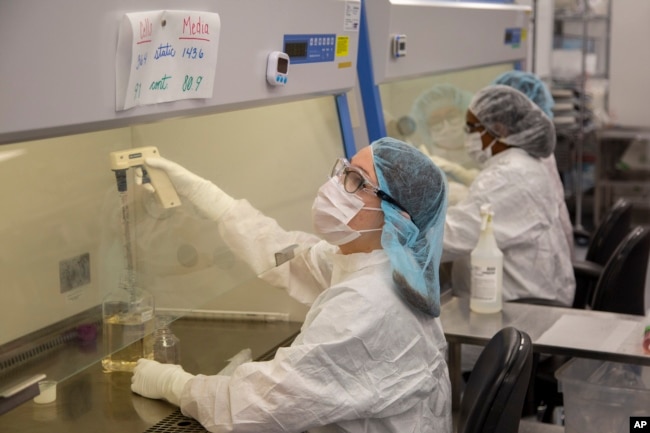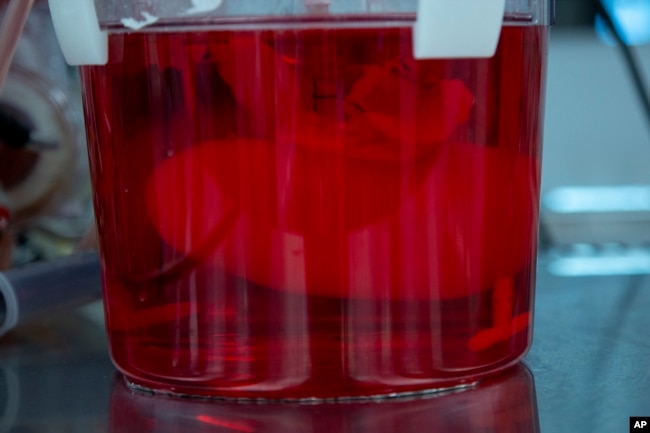Scientists Seek to Make Pig Livers to Function in Humans

American scientists are seeking to make pig livers behave more like human livers so they can be transplanted into people. The reengineered livers could help fill a big need for replacement organs.
The first step for scientists is to wash away the pig cells that help the organ do its work. This leaves the liver white and clear, with no blood vessels remaining in the tissue. Next, human liver cells are added to the empty pig liver. The living cells move throughout the organ in an effort to restart the liver’s functions.
Jeff Ross is head of the U.S.-based Miromatrix, the medical company involved in the research. He told The Associated Press, "Because we remove all the cells from that pig organ … our bodies don't see it as a pig organ." He explained that the process can nearly “regrow the organ.”

A technician works with bioreactors containing pig kidneys in a Micromatrix laboratory on Tuesday, Dec. 8, 2022, in Eden Prairie, Minn. (AP Photo/Andy Clayton-King)
Ross said the company aims to begin its first human testing sometime in 2023. The goal of the testing will be to try to prove that the method can create functioning human livers.
If the U.S. Food and Drug Administration approves the testing, the first experiment will take place outside a patient's body. A pig-turned-human-like liver will be put next to a patient to temporarily filter the blood of someone whose liver had failed.
Experts say if the "liver assist" experiment works, it would mark a major step forward in developing genetically engineered organs that could be transplanted into humans.
Dr. Sander Florman is the head of transplant operations at New York’s Mount Sinai Hospital. He told the AP the reengineering of animal organs for humans might sound like something only seen in science fiction.

Technicians add cells to media that will be used to add cells to the organs growing in bioreactors in a Micromatrix laboratory on Tuesday, Dec. 8, 2022, in Eden Prairie, Minn. (AP Photo/Andy Clayton-King)
Florman said that he thinks the “liver assist” method is likely to be used to help patients without the need to implant a full organ into their bodies. He said such a system can help save the lives of people suffering from organ failure.
More than 105,000 people are currently on the U.S. waiting list for an organ transplant. Thousands of them will likely die before they get a chance to receive a new liver. Thousands more never even get put on the list because they are not considered the best candidates.
“The number of organs we have available are never going to be able to meet the demand,” Dr. Amit Tevar told the AP. He is a transplant surgeon at the University of Pittsburgh Medical Center.
Tevar, who is not involved in Miromatrix’s research, said he thinks the planned outside-the-body testing would be an early first step in the development of animal organs for human use.
In 2021, researchers with Miromatrix and the Minnesota-based Mayo Clinic reported successfully transplanting a version of bioengineered livers into pigs.

A pig kidney grows in a bioreactor in a Micromatrix laboratory on Tuesday, Dec. 8, 2022, in Eden Prairie, Minn. (AP Photo/Andy Clayton-King)
In Maryland, a man lived for two months after receiving the world's first heart transplant from a pig in January 2022. To reduce the chance the man’s body would reject the heart, scientists removed several genes from the donor pig that are linked to organ rejection.
The FDA is currently considering whether to approve additional transplant experiments that would permit kidneys or hearts from gene-edited pigs to be placed into humans.
The bioengineering process, however, is very different. It does not require organs from genetically engineered pigs. It only requires leftover organs from slaughterhouses – places where animals are killed for food.
Words in This Story
transplant – n. to perform a medical operation in which an organ or other part that has been removed from the body of one person is put into the body of another person
function – v. to work or operate
filter – v. to pass a liquid or gas through a piece of equipment in order to remove solid pieces of other substances
edit – v. to change or correct something
https://gdb.voanews.com/03370000-0aff-0242-78a9-08dae9a872bf_cx0_cy5_cw0_w1023_r1_s.jpg